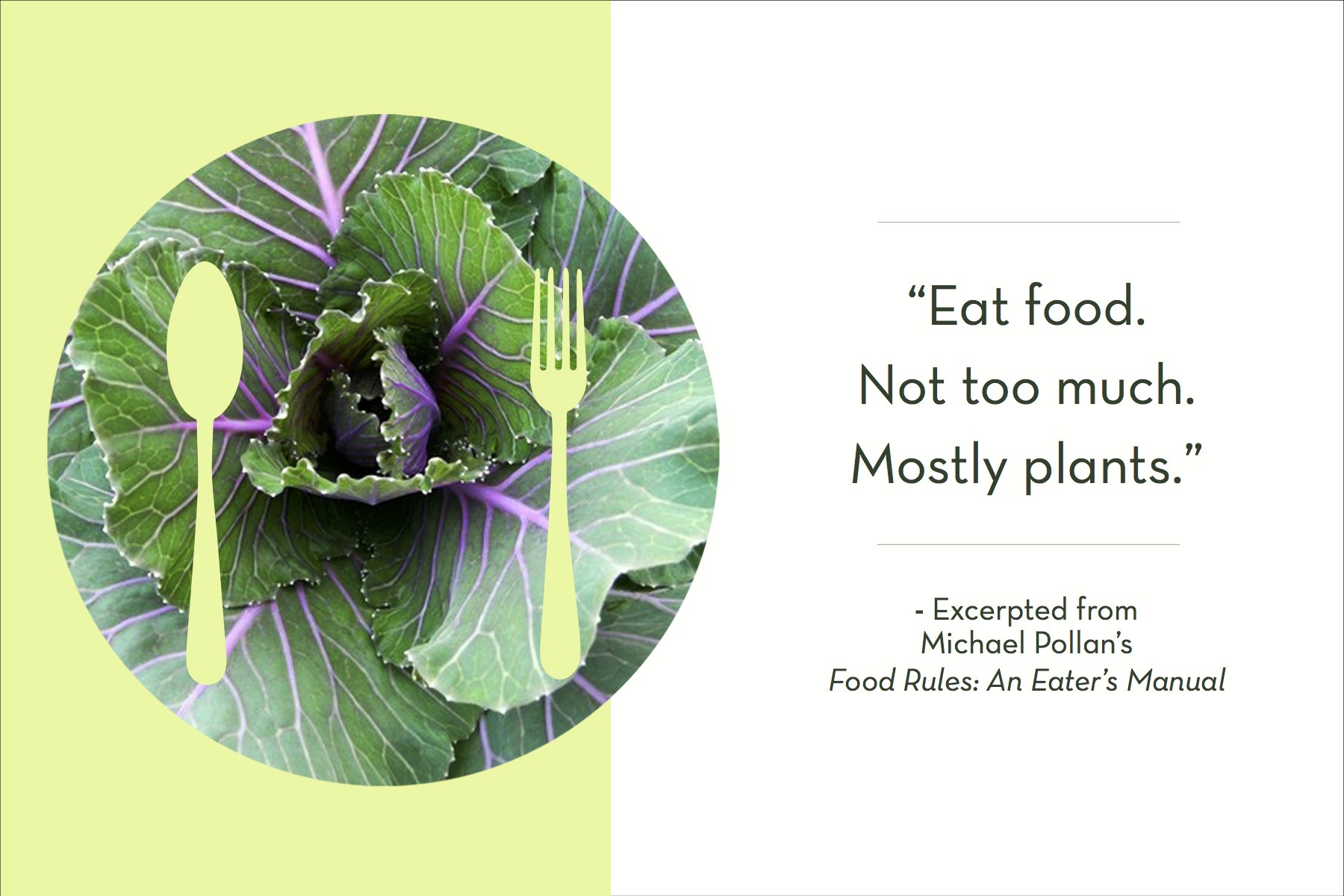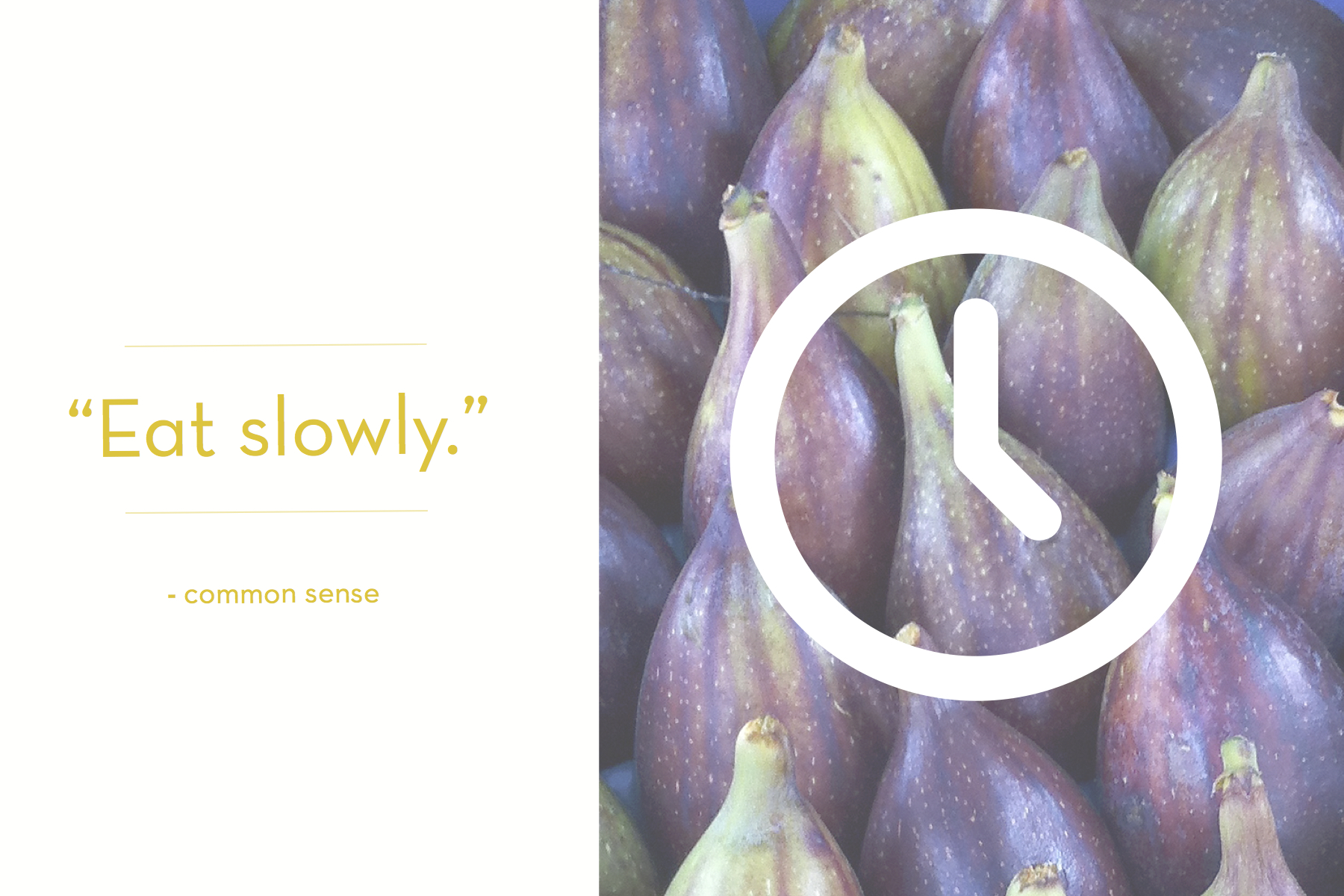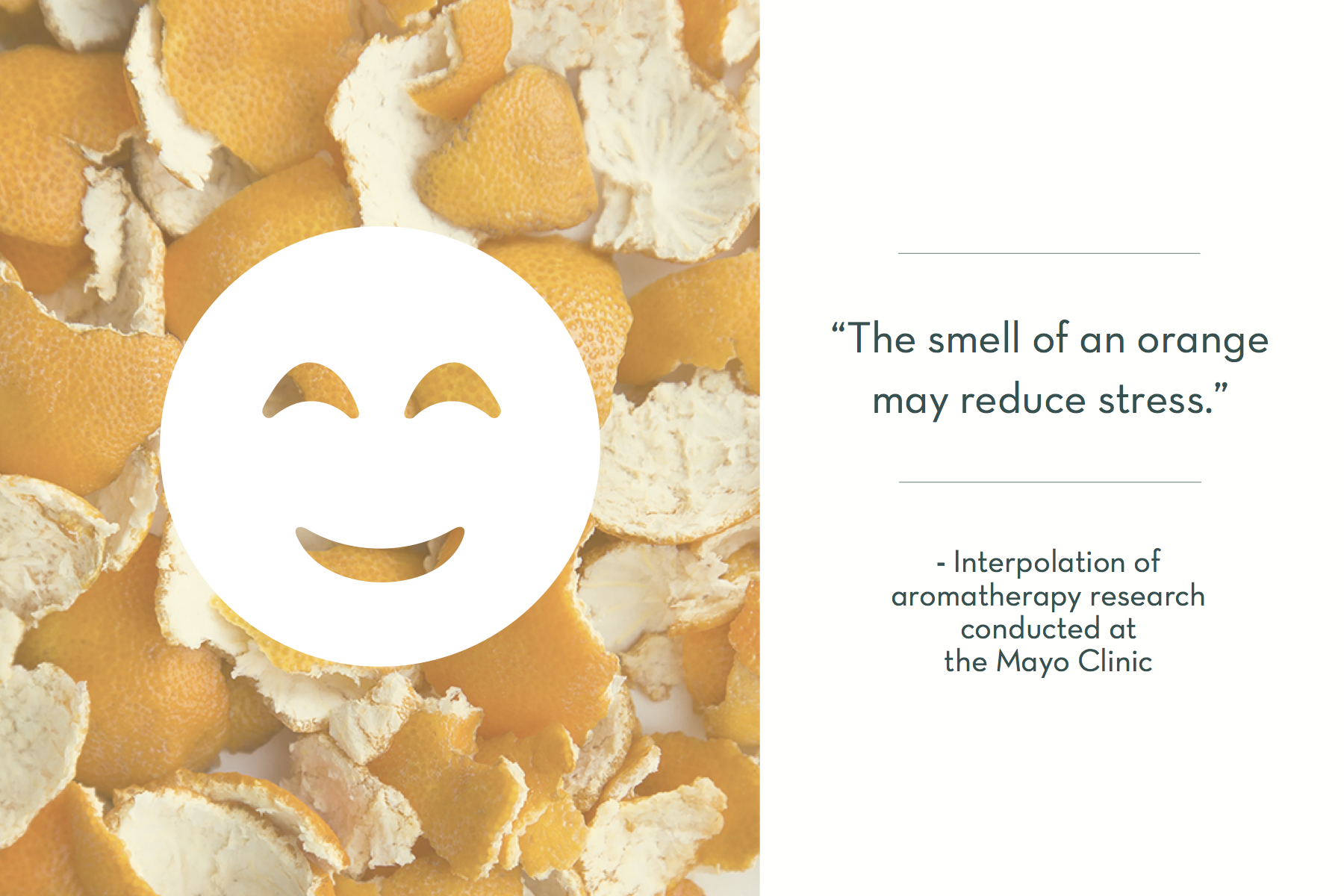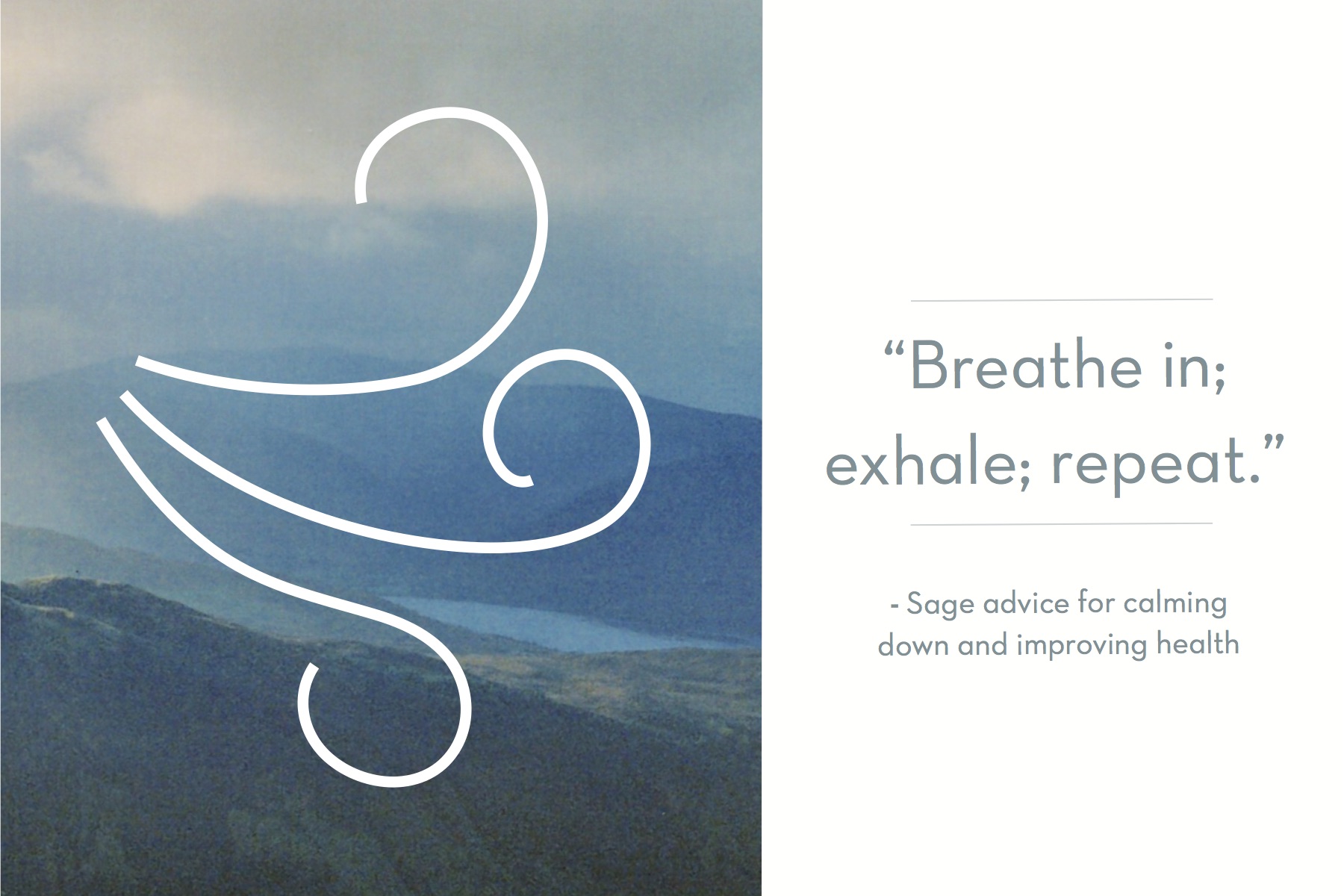10 Single-Sentence Wellness Hacks
“Eat food. Not too much. Mostly plants.”
— Excerpted from Michael Pollan’s Food Rules: An Eater’s Manual
Explanation: As Pollan famously wrote in his watershed 2007 essay, Unhappy Meals, for the New York Times: “Scientists may disagree on what’s so good about plants — the antioxidants? Fiber? Omega-3s? — but they do agree that they’re probably really good for you and certainly can’t hurt. Also, by eating a plant-based diet, you’ll be consuming far fewer calories, since plant foods (except seeds) are typically less “energy dense” than the other things you might eat. Vegetarians are healthier than carnivores, but near vegetarians (“flexitarians”) are as healthy as vegetarians. Thomas Jefferson was on to something when he advised treating meat more as a flavoring than a food.”
“If you have a choice between sleeping an extra hour or working out, sleep an extra hour.”
— Paraphrased advice from Karlie Kloss’ trainer, Anna Kaiser, in an interview with New York Magazine’s The Cut
Explanation: “If you have a choice where you’ve only been sleeping five or six hours and can sleep an extra hour or work out, sleep an extra hour. You’re running your body down, which will affect your energy and you’ll hold onto excess water and weight. It will make you hungrier. Five to six hours a night really prohibits your cognitive and hormone functions. You really need seven to eight hours. Working out harder or better or eating less isn’t the answer. It’s about getting enough sleep.”
“The purification of the mind is very necessary.”
— Swami Satchidananda, The Yoga Sutras
Explanation: In one of the most profound and important yogic writings of antiquity, Swami Satchidananda extolls the virtues of calming and toning the mind as part of the 196 Indian aphorisms that made it into the Yoga Sūtras of Patañjali, which were compiled prior to 400 CE by Sage Patanjali. Today, Western psychology has proven the benefits of meditation, mindfulness, and staying calm.
A review of 47 studies analyzed in JAMA Internal Medicine found that meditation meditation alone reduces anxiety and depression, decreases binge and emotional over eating, and increases positive emotions. There’s also something to be said for the health benefits of a positive mental attitude.
“Eat slowly.”
— Common Sense
Explanation: According to WebMD, eating more slowly improves digestion and thus increases the amount of nutrients your body can absorb from food, which also leads to better hydration and weight management. Eating slowly also improves or mitigates the symptoms of acid reflux, IBS, and increases satisfaction, all of which makes a person less likely to overindulge.
“The smell of an orange may reduce stress.”
— Interpolation of aromatherapy research conducted at the Mayo Clinic
Explanation: According to a study conducted at the Mayo Clinic, patients of massage therapists who used mandarin oil reported reduced stress, better digestion, and less nausea, while others exposed to the scent experienced less anxiety. “The scent of a fresh fruit can do amazing things,” Barbara Thomley, lead coordinator for the Complementary and Integrative Medicine Program at the Mayo Clinic, told Prevention.com. “From what we’ve seen with our patients, even a quick smell can make a major difference.”
“Breathe In; Exhale; Repeat.”
— Sage Advice for Calming Down and Improving Health
Explanation: According to several studies conducted at Harvard Medical School over the last several decades, mindfulness meditation can change your brain and improve human health.
Dr. James E. Stahl and his team of Harvard researchers studied a mind-body relaxation program offered through the Benson-Henry Institute for Mind Body Medicine at Massachusetts General Hospital. The 8-week program taught participants several different mind-body approaches, including meditation, yoga, mindfulness, cognitive behavioral skills, and positive psychology. Upon its conclusion, researchers found that people in the relaxation program “used 43% fewer medical services than they did the previous year, saving on average $2,360 per person in emergency room visits alone.” Similar yoga and meditation programs, they conclude, “could translate into health care savings of anywhere from $640 to as much as $25,500 per patient each year.”
“Eat more herbs– they are full of phytonutrients!”
— Common Theory of Agriculture
Explanation: As Jo Robinson, author of Eating on the Wild Side: The Missing Link to Optimum Health, explains in the New York Times: “Scallions, or green onions, are jewels of nutrition hiding in plain sight. They resemble wild onions and are just as good for you. Remarkably, they have more than five times more phytonutrients than many common onions do.
The green portions of scallions are more nutritious than the white bulbs, so use the entire plant. Herbs are wild plants incognito. We’ve long valued them for their intense flavors and aroma, which is why they’ve not been given a flavor makeover. Because we’ve left them well enough alone, their phytonutrient content has remained intact.”
“When you feel like you are coming down with a bug, don’t exercise.”
— Doctor corroborated advice from a mind-body wellness leaflet by H. Gillerman Organics
Explanation: Although perspiring and deep breathing help your body eliminate toxins when you are well, they tax your immune system when your body is working hard to defend itself against illness.
“Eat until you are 4/5ths full”
— Old Japanese Proverb
Explanation: “Hara hachi bun me” is a Confucian teaching that roughly translates to “Eat until you are eight parts (out of ten) full”, and this adage pervades the modern day Japanese emphasis on calorie restriction as a vehicle to better health. Perhaps not coincidentally, Okinawa, Japan has the world’s highest number of centenarians per capita in the world (approximately 50 per every 100,000 people).
“When in anger, sing the alphabet.”
–Fortune Cookie
Explanation: While we’ve all read our share of hilarious, at-times confusing fortune cookie messages, this one is corroborated by psychologists and emotional health experts alike. Anger is one of the most harmful emotions for us to bottle up; accordingly, it’s no surprise that research shows that people who fail to communicate their anger have weakened immune systems and they heal more slowly from wounds than those who express it.
Moreover, having healthy communication skills and healthy, reciprocal, and fulfilling relationships is the key to longterm emotional and physical wellbeing, which is why taking a moment to calm yourself before acting out of rage, and then expressing yourself clearly and fairly, can be very beneficial. (According to the American Psychological Association, women are less likely to express their anger than man– but they will hold on to it longer. So ladies: after you sing the alphabet, remember to speak up!)












































